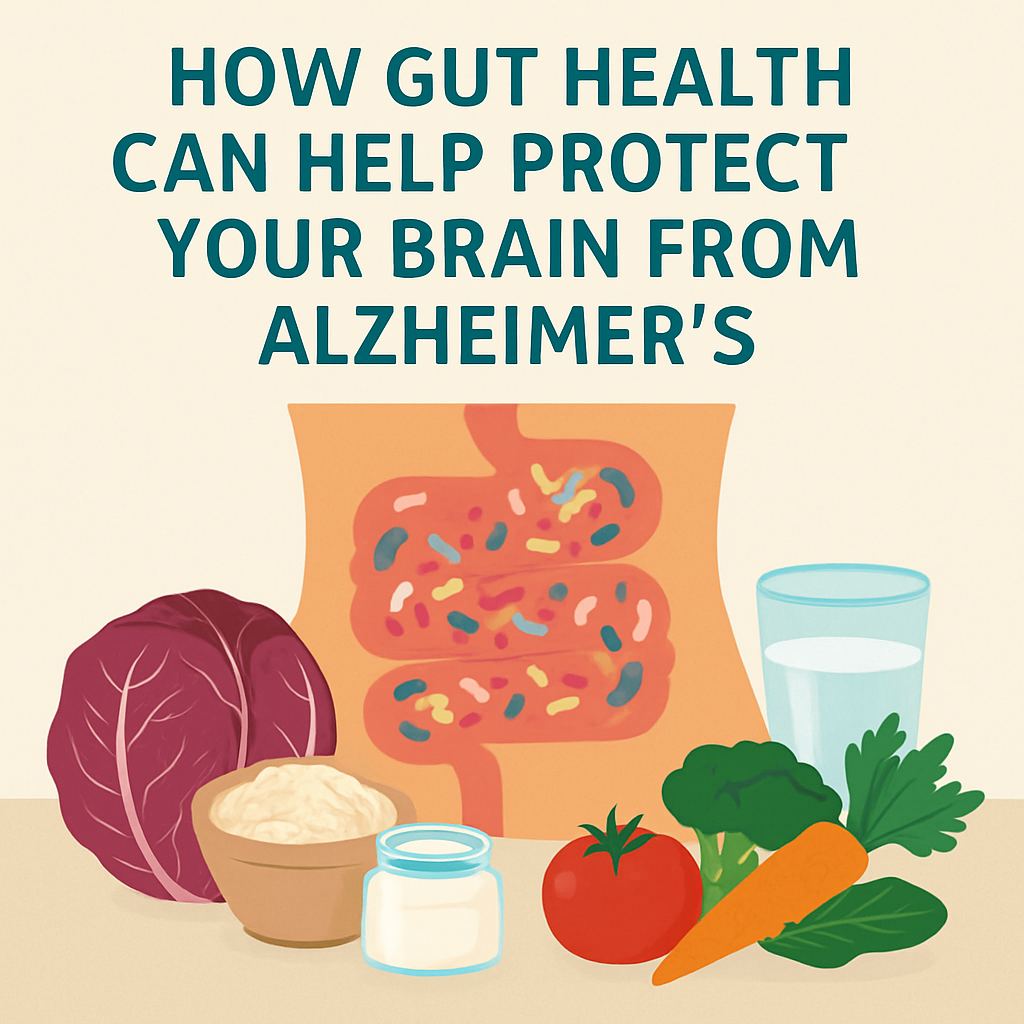By Milvia Pili (FNTP), Blue Zone Nutrition
June is Alzheimer’s Awareness Month — and while there is still no cure for this devastating disease, prevention remains our strongest line of defence. We’ve already looked at how clean water, avoiding toxins, healthy sleep, exercise and safe cookware can help protect our brains. But there’s another crucial — and often overlooked — area of focus: gut health.
The Gut-Brain Connection: Why It Matters
Emerging research reveals a powerful link between the gut and the brain, often referred to as the gut-brain axis. Your gut microbiome — trillions of beneficial bacteria, fungi and other microbes — plays a key role in regulating inflammation, producing neurotransmitters like serotonin, and even influencing your immune system.
A disrupted or imbalanced gut microbiome (known as dysbiosis) has been linked to many chronic conditions, including neurodegenerative diseases such as Alzheimer’s.
In fact, growing evidence shows that people with Alzheimer’s often have higher levels of gut inflammation, fewer beneficial bacteria, and a weakened gut barrier — allowing toxins and pathogens to enter the bloodstream and potentially harm brain cells.
How Can We Support Gut Health to Protect the Brain?
The good news is that you can nurture a healthy gut through diet and lifestyle — which may help safeguard cognitive function as you age.
1. Eat more plants
Fruits, vegetables, herbs, spices, nuts, seeds and legumes provide prebiotic fibres that feed good gut bacteria.
Aim to “eat the rainbow” — different colours = different phytonutrients.
2. Go organic where possible
Avoiding pesticides (which can damage gut flora and disrupt hormones) is key. Blue Zone regions like Okinawa, Sardinia and Ikaria traditionally eat organic, seasonal produce.
3. Fermented foods
Incorporate natural probiotics through foods like sauerkraut, kimchi, miso, kefir and live yoghurt to help populate the gut with beneficial microbes.
4. Cut out ultra-processed foods
UPFs damage gut health, increase inflammation, and add no nutritional value. Prioritise whole, unprocessed foods.
5. Ditch added sugar
Too much sugar feeds harmful bacteria and yeasts in the gut — contributing to dysbiosis.
6. Stay hydrated with clean water
Good hydration supports the gut lining and healthy digestion.
7. Manage stress and get quality sleep
Chronic stress and poor sleep harm both the gut and the brain.
The Blue Zone Way
It’s no coincidence that people living in the world’s Blue Zones — Okinawa (Japan), Sardinia (Italy), Nicoya Peninsula (Costa Rica), Loma Linda (California) and Ikaria (Greece) — enjoy remarkable brain health and lower rates of dementia.
Their plant-based, anti-inflammatory diets, strong community bonds and active lifestyles naturally support both gut health and cognitive resilience.
Prevention Is Possible
While no one can guarantee protection against Alzheimer’s, we can all take positive steps to reduce our risk — and gut health is one of the most powerful places to start.
Small changes today can make a big difference for your brain in the years ahead.
Written by Milvia Pili (FNTP), Blue Zone Nutrition
Share




